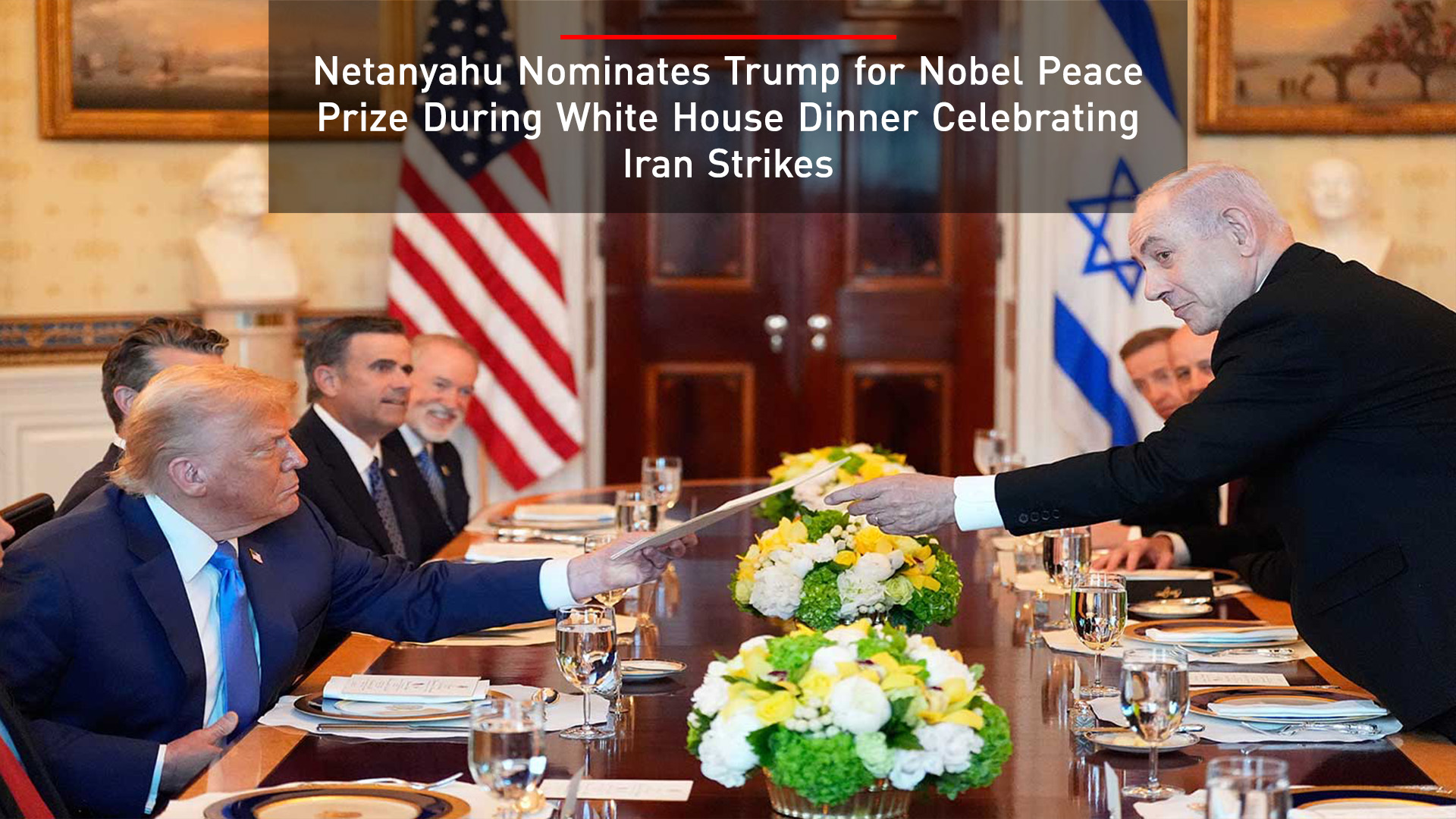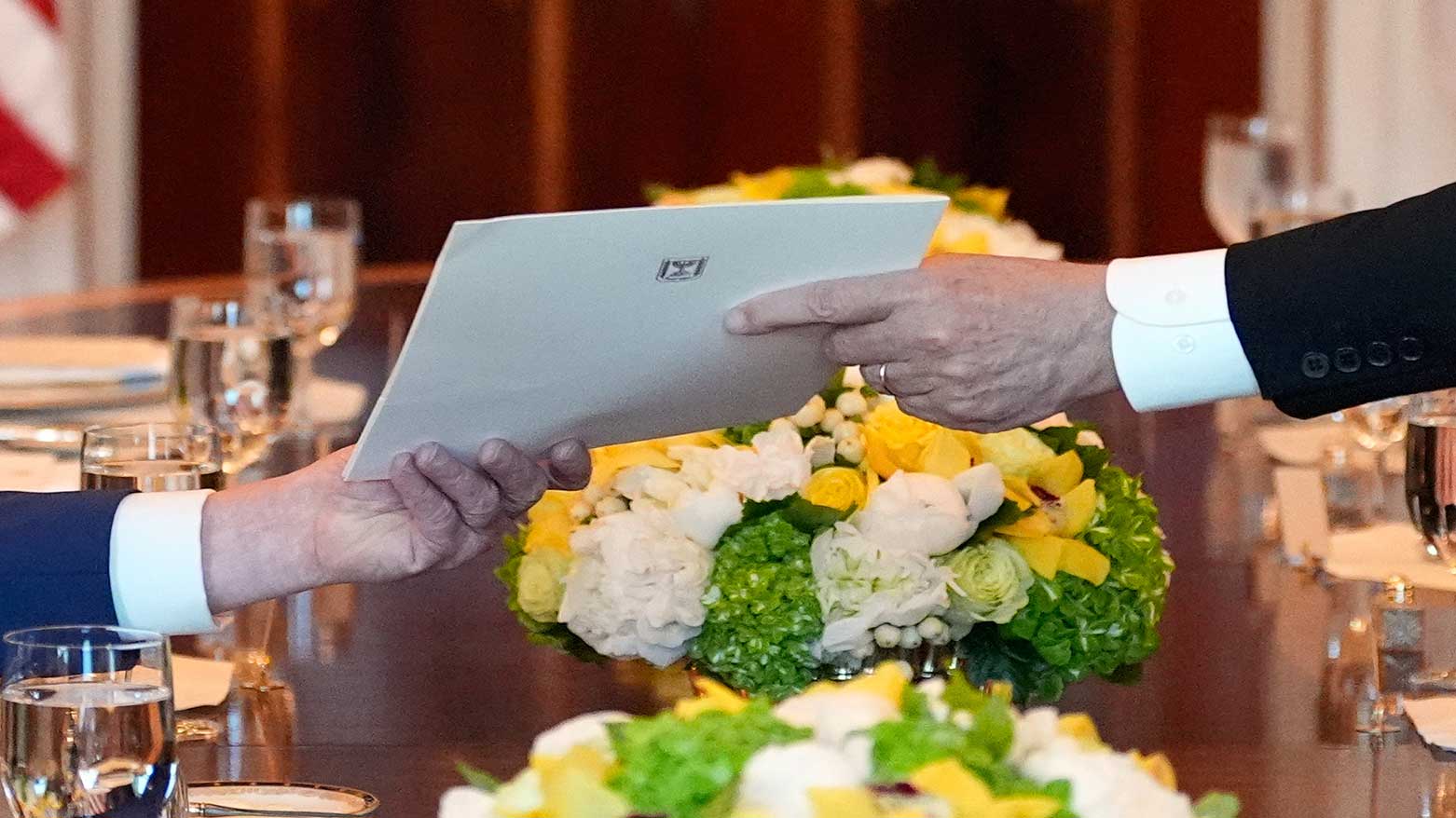Netanyahu Nominates Trump for Nobel Peace Prize During White House Dinner Celebrating Iran Strikes
The dinner, held in the White House’s Blue Room, brought together the two leaders and their top aides as they marked the success of last month’s coordinated U.S.-Israeli operation targeting three major Iranian nuclear sites.

ERBIL (Kurdistan24) — Israeli Prime Minister Benjamin Netanyahu nominated U.S. President Donald Trump for the Nobel Peace Prize during a celebratory dinner at the White House on Monday, hailing their recent joint strikes on Iranian nuclear facilities as a decisive military and diplomatic victory, according to the Associated Press (AP).
The dinner, held in the White House’s Blue Room, brought together the two leaders and their top aides as they marked the success of last month’s coordinated U.S.-Israeli operation targeting three major Iranian nuclear sites. The meeting also served to advance discussions on a proposed 60-day ceasefire in Gaza, amid the ongoing war between Israel and Hamas.
“He’s forging peace as we speak, one country and one region after the other," Netanyahu said, presenting Trump with a formal nomination letter addressed to the Nobel Committee. In response, Trump expressed deep appreciation, saying, “Coming from you in particular, this is very meaningful.”

The push for the prestigious peace award follows years of lobbying by Netanyahu for U.S. military intervention against Iran’s nuclear program—a goal Trump fulfilled by ordering bunker-buster airstrikes and Tomahawk missile strikes on underground atomic facilities in Iran. Trump has positioned himself as a global peacemaker, referencing diplomatic breakthroughs brokered during his presidency, including truces between Israel and Iran, India and Pakistan, and the Democratic Republic of Congo and Rwanda.
According to AP, both leaders projected optimism that the Iran strike would usher in a “new era” in the Middle East. “I think things are going to be really settled down a lot in the Middle East," Trump told reporters. "And, they respect us and they respect Israel."
Trump revealed that talks with Iran regarding its nuclear program are tentatively back on track, though Tehran has yet to confirm. “We have scheduled Iran talks, and they want to,” Trump said. His Middle East envoy, Steve Witkoff, suggested the negotiations could begin within the week. However, Iranian President Masoud Pezeshkian, in an interview with Tucker Carlson, said the extent of damage from U.S. strikes has made immediate re-engagement with international nuclear inspectors difficult. “Unfortunately, as a result of the United States’ unlawful attacks against our nuclear centers and installations, many of the pieces of equipment and the facilities there have been severely damaged,” Pezeshkian noted.
While celebrating the Iran strikes, Trump and Netanyahu also discussed the Gaza ceasefire proposal. U.S. officials are pushing for a 60-day truce that would allow the entry of humanitarian aid, facilitate the release of some 50 remaining hostages—20 of whom are believed to be alive—and potentially halt the fighting. Witkoff is expected to travel to Doha later this week to pursue these negotiations.
A major sticking point remains the ceasefire’s terms. Hamas demands a complete end to the war and full Israeli withdrawal from Gaza in exchange for the release of all hostages. Netanyahu insists Israel’s war will continue until Hamas disarms, surrenders, and agrees to exile—terms Hamas has rejected. “We’ll work out a peace with our Palestinian neighbors, those that don’t want to destroy us,” Netanyahu said.
The Netanyahu-Trump alliance now appears stronger than ever. What remains to be seen is whether this renewed synergy can translate into lasting peace—or yet another shift in an ever-volatile region.

